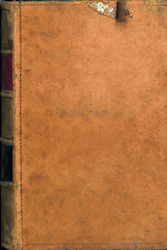Mr. Hart to Mr. Phelps.
EL Paso, Texas, January 29, 1860.
My Dear Major: By the return of the express to Chihuahua, I advised the governor, Señor Munoz, (who by the by is my wife’s cousin,) in the event that he could not hold Chihuahua, to fall back on the Rio Grande, bringing with him the congress and all the civil officers, and to take post in El Paso, in front of this place, where a secure force, American volunteers and no doubt United States troops, could be organized, with which the governor could return to his capital and drive the insurgent church-party out of the State. I also said to the governor that if he would make formal application through the Chihuahua United States consul for United States troops, that I would proceed to Santa Fé with such application and endeavor to induce Colonel Fauntleroy to take prompt action in the matter, and anticipate authority from the President to do so.
I have fully arranged with the authorities of El Paso, to the effect that they will ask for United States troops to occupy that town and Guadalupe and San Ygnacio, should such occupation be deemed necessary to protect Americans and their property in those towns. I expect by next mail from Santa Fé, due here in ?ve days, that orders will come from Colonel Fauntleroy for the troops at Fort Bliss to occupy the above towns, when the Mexican authorities ask that it may be done.
I have no doubt such occupation will be necessary, perhaps, indeed, before we can hear from Santa Fé, or at any moment news may reach here that Chihuahua is taken, and the next hour may witness in the towns on the other side of the river the utmost disorder and injury to Americans, and their property spoliated beyond redress and remedy. I have $30,000 in personal property and real estate in the said towns, and you may suppose I am uneasy regarding its safety. I trust the President has lost no time in taking measures for our safety.
Truly and sincerely yours,
S. HART.
Hon.John S. Phelps,
Washington, .D. C.
A letter in Difficulties on Southwestern Border, House Documents, Volume 126; Volume 128, United States House of Representatives, U.S. Government Printing Office, 1860
During the 12 years following the Mexican-American War there were present on the frontiers of Texas and Mexico many factors that tended to create disturbances. The topography of the country, the sparsity and general character of its population, the lack of an extradition treaty and of sufficient national authority, wild Indians of uncertain abode, the Mexican tariff system, all caused friction and gave encouragement to lawlessness which not only retarded the development of the region but often threatened to interrupt friendly relations between the two republics. [Border Troubles along the Rio Grande, 1848-1860, The Southwestern Historical Quarterly, Vol. 23, No. 2 (OCTOBER, 1919)]
